


GOTTHOLD EPHRAIM LESSING 1729 -
xxxxxThe German playwright Gotthold Ephraim Lessing laid the foundations for modern German drama. In his plays he rejected the constraints laid down by the French theatre, choosing his characters freely and centring his action on the domestic issues of middle-
xxxxxThe playwright and critic Gotthold Emphraim Lessing, one of the great men of German letters, and an outstanding champion of freedom of thought, laid the foundations for modern German drama. His domestic tragedy Miss Sara Sampson of 1755, woven around middle-
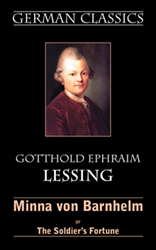 xxxxxA number of notable works followed. His comic masterpiece Minna von Barnhelm (The Disbanded Officer) was produced in 1767, and is regarded today as one of his country's finest comedies. Set against the background of the struggle between Prussia and Saxony in the Seven Years' War, it marks the birth of classical German comedy. And his next major work, Emilia Galotti, a tr
xxxxxA number of notable works followed. His comic masterpiece Minna von Barnhelm (The Disbanded Officer) was produced in 1767, and is regarded today as one of his country's finest comedies. Set against the background of the struggle between Prussia and Saxony in the Seven Years' War, it marks the birth of classical German comedy. And his next major work, Emilia Galotti, a tr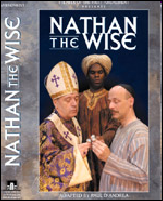 agedy based on a Roman legend, had a marked influence on the development of the German Sturm und Drang movement (Storm and Stress movement) in which Goethe, Schiller and others -
agedy based on a Roman legend, had a marked influence on the development of the German Sturm und Drang movement (Storm and Stress movement) in which Goethe, Schiller and others -
xxxxxLessing was born in Kamenz, Saxony, the son of a Protestant minister. He studied theology and medicine at Leipzig and Wittenberg Universities, and it was while at Leipzig that he began writing for the theatre, an interest inspired by his reading of the Latin dramatists Plautus and Terence as a child. To this early period belongs his first comedy The Young Scholar, a delightful satire on a young man's vanity and arrogance. This was first performed in 1748, and was followed, amongst others, by his The Freethinker and The Jews. The first was a portrayal of bigotry, whilst the second was a plea for religious and racial tolerance. These witty plays broke away from the set characters of traditional drama, and, whilst centred around human frailty, also included virtuous men and women.
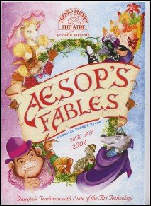 xxxxxBy 1758 he was in Berlin, and it was here, together with his friend the philosopher Moses Mendelssohn and the writer Friedrich Nicolai, that he produced Letters on the Most Recent Literature. It was by means of these critiques that he denounced the French influence in German literature, and argued that Shakespeare was a freer, less restricted model for German dramatists to emulate, being much more in keeping with the German mentality. Then in 1759 he produced a number of short prose fables, together with an appraisal of the genre itself. He saw these fables as providing salutary lessons in correct behaviour. Indeed, he took the French fabulist La Fontaine to task for producing tales which, though charming in themselves, generally served no useful purpose. He wanted a return to Aesop, whose stories always had a moral content.
xxxxxBy 1758 he was in Berlin, and it was here, together with his friend the philosopher Moses Mendelssohn and the writer Friedrich Nicolai, that he produced Letters on the Most Recent Literature. It was by means of these critiques that he denounced the French influence in German literature, and argued that Shakespeare was a freer, less restricted model for German dramatists to emulate, being much more in keeping with the German mentality. Then in 1759 he produced a number of short prose fables, together with an appraisal of the genre itself. He saw these fables as providing salutary lessons in correct behaviour. Indeed, he took the French fabulist La Fontaine to task for producing tales which, though charming in themselves, generally served no useful purpose. He wanted a return to Aesop, whose stories always had a moral content.
xxxxxThere followed two years in Hamburg, where, though failing to establish a national theatre -
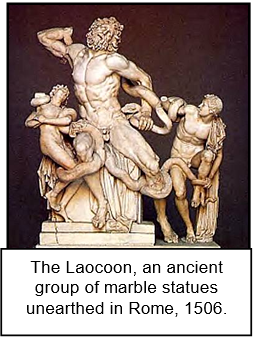 xxxxxBut Lessing's contribution to his nation’s heritage was by no means confined to drama. A trenchant and prolific writer, he was a champion of religious and intellectual tolerance. His works of criticism, written with wit and clarity, and spilling over into a wide range of diverse subjects, had a profound effect upon future German writers. In his treatise Laocoon of 1766, for example, he analysed the aesthetic distinctions between poetry, sculpture and painting, and, in defining their limits, opposed the views of the German art historian Johann Winckelmann. As an archaeologist he made his mark with his Letters on Archaeology, completed in 1769, and his treatise, The Education of the Human Race, was the work of an optimistic humanist. Written a year before his death, it envisaged the development of moral awareness and the attainment of the brotherhood of man, free from dogma and doctrine.
xxxxxBut Lessing's contribution to his nation’s heritage was by no means confined to drama. A trenchant and prolific writer, he was a champion of religious and intellectual tolerance. His works of criticism, written with wit and clarity, and spilling over into a wide range of diverse subjects, had a profound effect upon future German writers. In his treatise Laocoon of 1766, for example, he analysed the aesthetic distinctions between poetry, sculpture and painting, and, in defining their limits, opposed the views of the German art historian Johann Winckelmann. As an archaeologist he made his mark with his Letters on Archaeology, completed in 1769, and his treatise, The Education of the Human Race, was the work of an optimistic humanist. Written a year before his death, it envisaged the development of moral awareness and the attainment of the brotherhood of man, free from dogma and doctrine.
xxxxxWhilst his career as dramatist and critic achieved much and proved influential, his personal life was tinged with sadness. His wife died in childbirth just two years after their marriage in 1776, and he was dogged by disappointment. In 1768 his hopes of establishing a national theatre at Hamburg came to nothing, he failed in his ambition to be appointed the royal librarian in Berlin, and in his later years he was hounded for his radical views -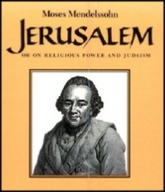 egan to fail, and he died a poor and lonely man.
egan to fail, and he died a poor and lonely man.
xxxxxIncidentally, the title character in Nathan the Wise was modelled on his close friend Moses Mendelssohn, whom he met in 1754. Like Lessing, the German-
Acknowledgements
Lessing: 1771, by the Swiss portrait artist Anton Graff (1736-
G3a-


